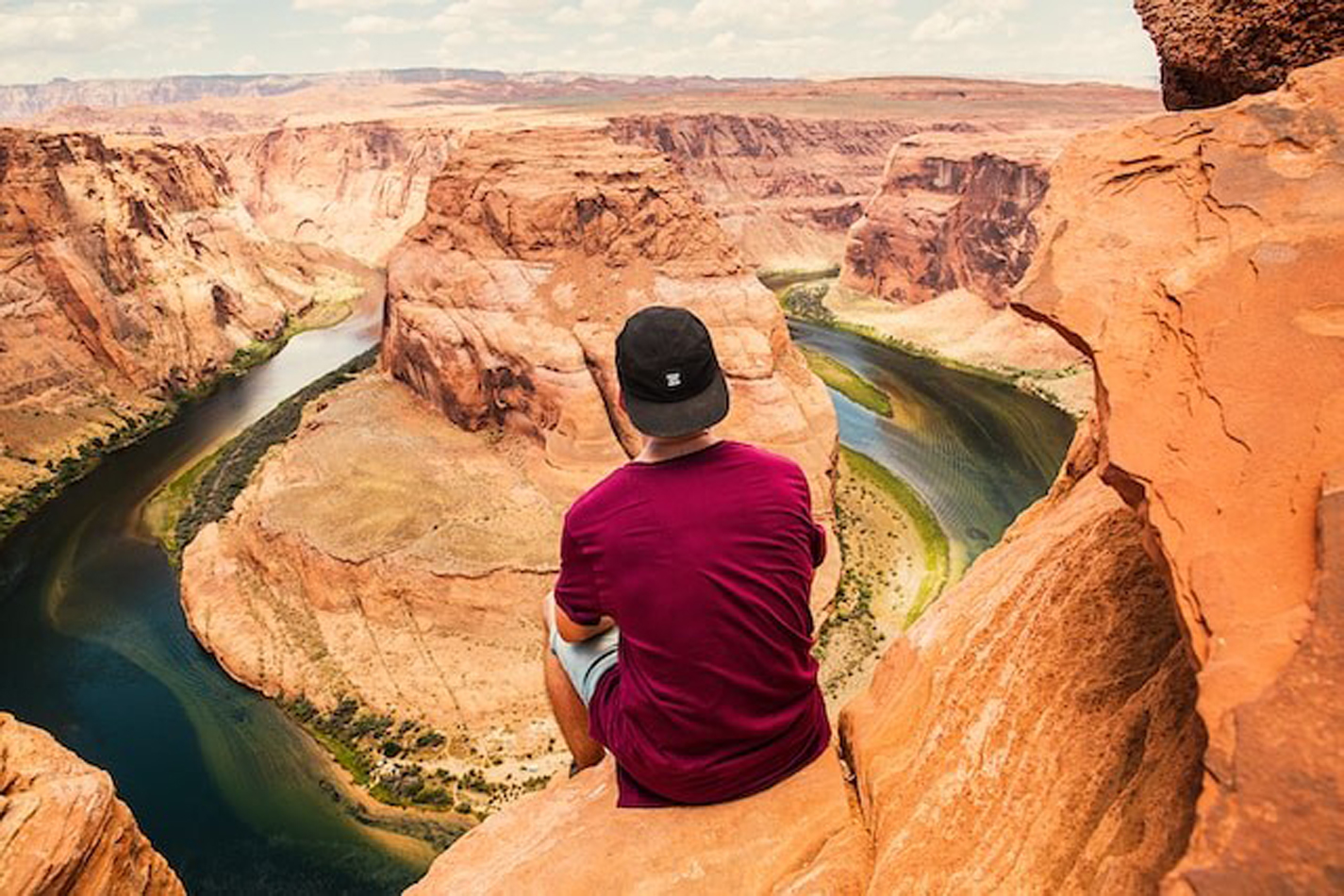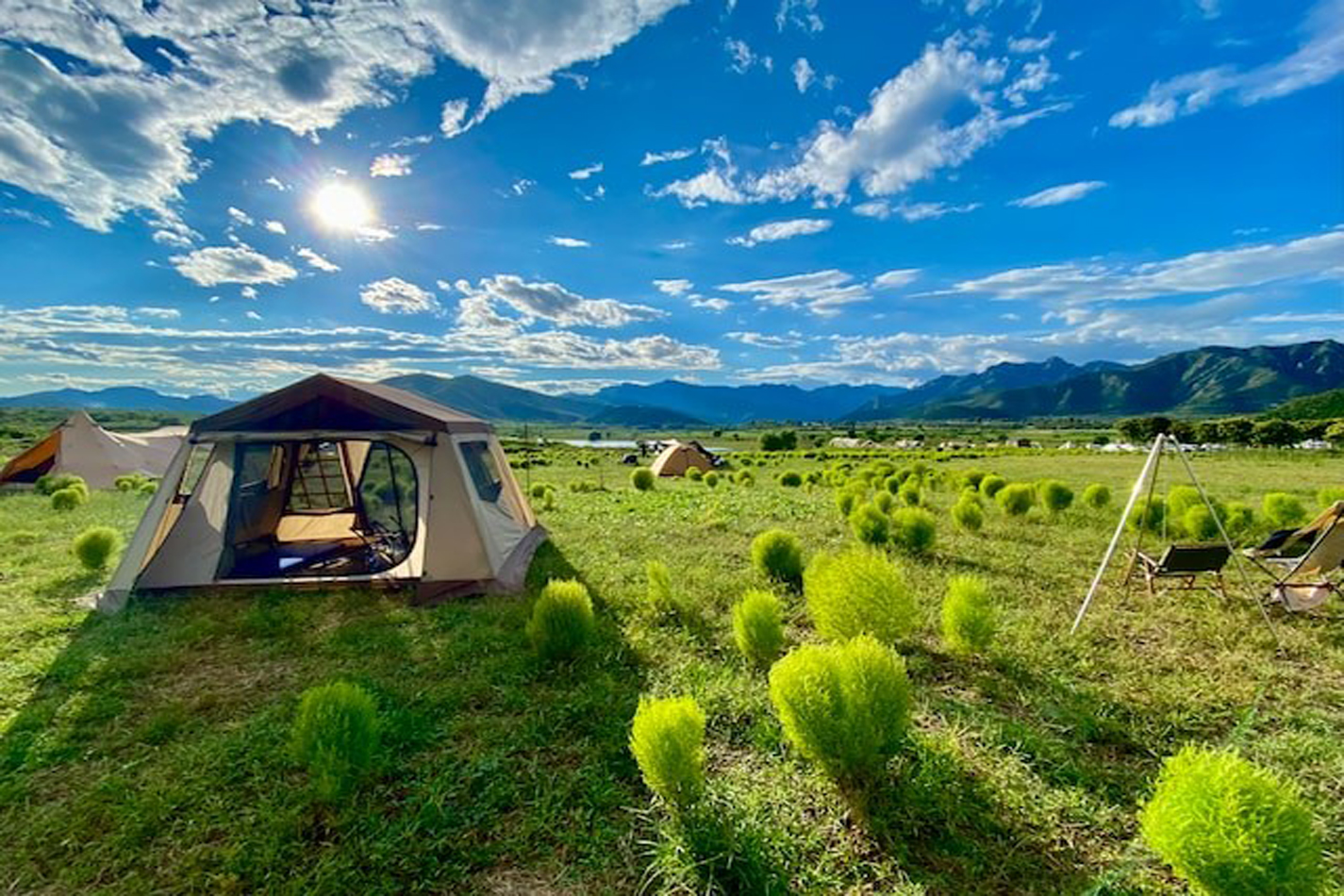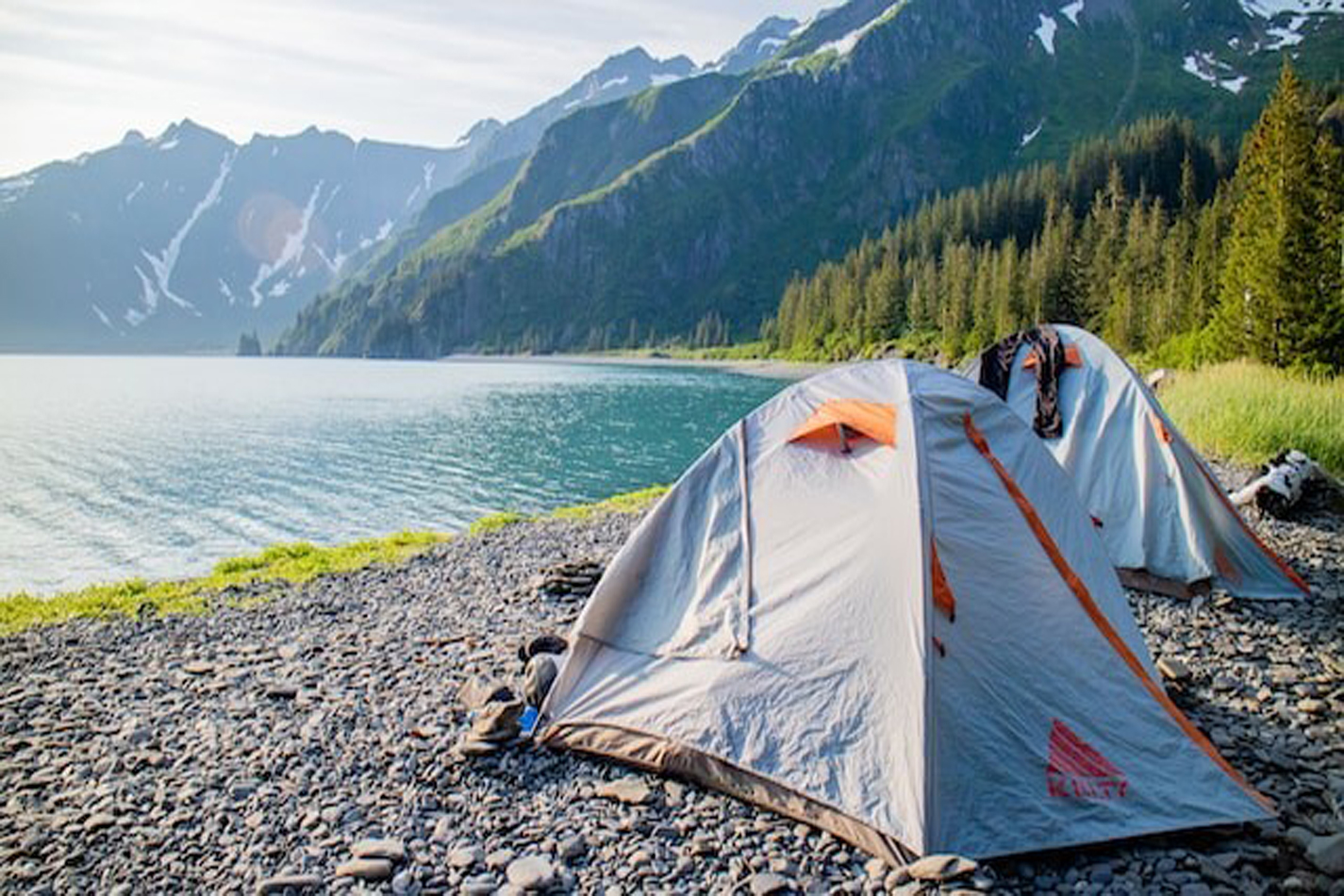What is Solo Camping?
Solo camping, a rising trend in outdoor recreation, refers to the practice of individuals embarking on camping trips alone. According to a survey by KOA, 5% of campers took at least 1 solo camping trip in 2021 thus reinforcing the growing trends of solo camping.
Solo camping goes beyond the conventional group camping experience, offering a unique and solitary adventure in the great outdoors. 63% of campers used camping as a way to help improve their mental health in 2021. Engaging in solo camping offers an excellent chance for introspection, self-discovery, and personal growth.

Solo camping can be a deeply personal and reflective experience, allowing individuals to disconnect from the hustle and bustle of everyday life, gain a sense of self-sufficiency, and develop a stronger connection with the outdoors.
Embarking on a solo camping expedition is not just about setting up a tent and a campfire. It's a unique experience that demands careful preparation and self-reliance. In this article, we'll explore the world of solo camping, covering everything from choosing the right location to essential gear and mental preparedness.
Types of Solo Campers
Embarking on a solo camping adventure is not a one-size-fits-all experience. Your choice of solo adventure depends on your preferences, comfort level, and the degree of isolation you seek. Here, we'll explore two distinct types:
The Social Solo Camper
For those who appreciate solo camping but also value the occasional company, the Social Solo Camper is the perfect fit. This type opts for locations where there may be other campers nearby or towns within reach. The idea is to relish the serenity of solo camping while maintaining the option to interact with fellow outdoor enthusiasts. Campsites like Sheep Yard Flat near Mansfield exemplify this balance, offering open spaces with the potential for a social camping experience.
The Extreme Explorer
On the other end of the spectrum is the Extreme Explorer, a solo camper who seeks the utmost isolation. This adventurer thrives on venturing into remote locations where the chance of encountering other people is minimal, sometimes not seeing anyone for days or even weeks. Examples include the vast and secluded landscapes of the Victorian High Country or venturing deep into the heart of Central Australia. The Extreme Explorer is drawn to the challenge of complete self-reliance and the immersive experience of nature in its purest form.
What are the Advantages of Solo Camping
Solo camping offers valuable alone time, providing a sense of peace through physical and digital distancing. It allows for personal freedom to set up camp, explore, and eat at your own pace. The experience hones existing skills and fosters self-reliance, boosting confidence. Being alone facilitates self-reflection and a deeper understanding of one's desires. Reconnecting with others afterward may enhance appreciation for their presence.
The Disadvantages of the Solo Camping
Increased Workload: Camping alone means handling all chores alone, increasing workload. Potential Isolation and Loneliness: Extended solo camping may lead to feelings of isolation and loneliness. Evaluate your comfort with extended solitude, as it can be enriching but may lead to loneliness. Safety Concerns: Solo campers may feel uncertain or unsafe in the wilderness. Decision Making: Solo camping brings the weight of constant decision-making, known as decision fatigue. Especially in prolonged trips, managing mental strain, from route planning to meals, is vital. Higher Risk in Emergencies: In case of emergencies, solo campers lack immediate assistance. Potential Boredom: Solo camping can lead to moments of boredom and a desire for companionship. Extra Preparation for Success: Mitigate drawbacks through meticulous planning, thorough research, and acquiring necessary skills.
Key Considerations Before You Go Solo Camping
Know Your Limits
Before venturing into solo camping, it's crucial to introspect and comprehend your own limitations. Consider your physical fitness, outdoor survival skills, and mental preparedness. Knowing your limits helps in planning a solo camping trip that aligns with your abilities, ensuring a safer and more enjoyable experience.
Assessing the Remoteness
Understanding the level of remoteness in your chosen camping location is paramount. Different solo campers have varying preferences - some may opt for campsites near towns, while others may seek the complete isolation of remote wilderness. Assessing the remoteness helps you prepare for the challenges unique to that environment, from accessibility to emergency services to the availability of essential resources.
Self-Reliance - Can You Handle It?
Solo camping demands a high degree of self-reliance. Consider whether you can handle the challenges that may arise without external support. In the absence of companions, you become solely responsible for your well-being. This includes setting up camp, dealing with unforeseen circumstances, and problem-solving. Assess your skills and confidence in navigating the wilderness independently.
Mastering Self-Recovery on Full-Drive Tracks
If you're planning a solo camping trip with a 4WD vehicle, mastering self-recovery techniques is essential. Understand the operation of your winch, recovery gear, and the proper procedures for extracting your vehicle from challenging terrains. Being adept at self-recovery ensures that you can navigate full-drive tracks with confidence, reducing the risk of getting stuck without assistance.
Inform Others About Your Whereabouts
One of the most critical aspects of solo camping is informing others about your plans. Before setting out, share a detailed trip plan with family or friends. Include your intended route, expected duration of the trip, and specific camping locations. This information becomes crucial in case of unforeseen circumstances, ensuring that rescue efforts can be directed to your precise whereabouts.
Planning Your Solo Trip
Thorough Trip Planning
Thorough trip planning is the cornerstone of a successful solo camping expedition. It involves meticulous preparation, from choosing the destination to outlining your route and considering potential challenges. Start by defining your objectives for the trip and tailor your plans accordingly. A well-thought-out plan enhances safety, maximizes enjoyment, and minimizes unforeseen complications.
Researching Your Camping Area
Before venturing into the great outdoors alone, conduct comprehensive research on your selected camping area. Familiarize yourself with the terrain, climate, and local flora and fauna. Identify any potential hazards or restrictions in the region. This research ensures you're adequately equipped and mentally prepared for the specific conditions of your chosen camping spot.
Understanding the Terrain
Understanding the terrain is crucial for solo camping safety and success. Solo campers should thoroughly research and analyze the topography of their chosen location. Assess factors like elevation, vegetation, water sources, and potential hazards. Research the specific tracks and trails you plan to explore, considering their difficulty levels and potential obstacles.
This knowledge aids in planning a suitable route, choosing appropriate camping spots, and being prepared for the unique challenges of the terrain. Stay informed about weather conditions and be equipped with navigation tools to navigate confidently through diverse landscapes..
Creating a Detailed Trip Plan
A detailed trip plan serves as your roadmap for the solo adventure. Include specifics such as the planned route, camping locations, and estimated travel times. Note key landmarks and potential emergency exits. Share this comprehensive plan with someone you trust, ensuring there's a record of your intended journey. A well-crafted trip plan enhances safety, aids in rescue operations if needed, and contributes to an organized and stress-free solo camping experience.
Essential Gear for Solo Camping
More or less you need the same gears you always use for other camping. However, Solo camping requires less gear and food compared to group camping. You might skip extras like multiple sleeping bags, camping chairs, air mattresses and dishes. Consider solo-specific items like a hammock, or lightweight tent suitable for the season, compact sleeping pad and convenient options like dehydrated meals. Simplify your essentials for a more enjoyable solo experience.
Lightweight and Durable Backpack
Opt for a lightweight and durable backpack with ample capacity for your solo camping adventures. A reliable backpack is essential to comfortably carry all your gear while exploring the outdoors.
Cooking Essentials
For solo campers, efficient cooking is key. Equip yourself with a portable stove or backpacking cookware that minimizes weight and maximizes functionality. Lightweight utensils and dishes make meal preparation and cleanup a breeze.
Fire-starting Kit
Ensure a reliable start to your solo camping experience with a fire-starting kit. Pack waterproof matches or a lighter alongside a firestarter to easily ignite a campfire.
Winch Recovery and Winch Gear Bag - Your Best Companion
If you are using your vehicle, a winch is a solo camper's best companion when navigating challenging terrains. This essential piece of gear provides a reliable means of self-recovery if your vehicle gets stuck. Investing in a quality winch and mastering its operation ensures you have the capability to extricate your vehicle from difficult situations, enhancing your independence during solo camping adventures.
Similarly, your winch gear bag should be a carefully curated collection of tools required for successful recovery. Include a damper blanket, a tree trunk protector, shackles, and soft shackles. Additionally, a pulley block becomes invaluable for double-line pulls, and a winch extension strap provides flexibility in challenging scenarios.
Safety on the Go - Packing a First Aid Kit
A well-equipped first aid kit is non-negotiable for solo campers. Include items for treating injuries, insect bites, and other common outdoor ailments. Customize your kit to the specific challenges of your chosen camping area. Having a comprehensive first aid kit on hand ensures that you can address minor injuries promptly and handle unexpected health issues, promoting a safe and secure solo camping experience.
Survival Gear - Staying Safe in the Wild
Beyond the basics, packing survival gear is crucial for solo campers. Items like a sturdy knife, fire-starting tools, a reliable flashlight, and an emergency shelter should be part of your survival kit. These items provide additional layers of protection and preparedness, offering peace of mind as you navigate the unpredictable elements of the wilderness during your solo camping expedition.
Important Full-Drive Spares
Solo campers relying on a 4WD vehicle must carry important spares to mitigate the risk of mechanical breakdowns. Identify critical components prone to failure, such as belts and pulleys, and pack the necessary spares. A well-stocked toolbox with essential tools for basic repairs ensures that you can address minor mechanical issues, reducing the likelihood of being stranded in remote locations.
Safety First: What to Pack
Dressing for Success - Warm Clothes in Every Season
Packing appropriate clothing is vital for your safety and comfort during solo camping, irrespective of the season. Include layers that can be adjusted based on temperature changes. Essential items may include a durable and weather-resistant outer layer, insulating layers for warmth, and moisture-wicking base layers. By dressing appropriately, you not only stay comfortable but also reduce the risk of weather-related health issues during your solo camping adventure.
Safety Beyond Reception - The SOS Signal on Your Phone
In areas where cellphone reception is unreliable, your phone can still be a lifeline. Familiarize yourself with the SOS feature on your phone, often denoted by an emergency signal. This feature allows you to dial emergency services even with minimal reception. Understanding and having access to this function can be crucial in urgent situations, adding an extra layer of safety during your solo camping trip.
PLB - A Compact Lifesaver
A Personal Locator Beacon (PLB) is a compact and essential tool for solo campers. This device sends distress signals to search and rescue authorities in case of an emergency. PLBs operate independently of phone networks and can transmit your precise location, expediting rescue efforts. Investing in a reliable PLB is a proactive measure to enhance your safety, providing peace of mind during your solo camping excursions.
Mind Games and Solo Camping
Solo camping not only tests your physical prowess but also challenges your mental resilience. Conquering the solitude requires a strategic approach. Here's a guide on navigating the psychological aspects of solo camping:
Starting Small - Tips for First-Timers
If you're new to solo camping, start small. Choose campsites where you'll be alone but not excessively isolated. This gradual approach allows you to acclimate to the solo experience, familiarize yourself with the challenges, and build confidence for more remote adventures.
Dealing with Isolation - Music and Entertainment
Isolation can be challenging, but music can be your companion. Bring along a portable speaker or headphones and curate a playlist that suits the mood of your surroundings. Engage in entertainment, be it reading a book, playing a musical instrument, or even trying your hand at some solo card games. These simple pleasures can alleviate feelings of isolation and enhance your overall experience.
Overcoming Challenges - An Inevitable Part of Solo Camping
Solo camping will inevitably present challenges. Instead of viewing them as obstacles, see them as opportunities for personal growth. Whether it's solving unexpected problems or navigating difficult terrains, each challenge is a chance to prove your resilience and resourcefulness. Embrace these moments as part of the enriching solo camping journey.
Sharing Experiences - Building a Solo Camping Community
While solo camping implies being alone physically, it doesn't mean you can't share your experiences. Join online communities or forums dedicated to solo campers. Share your stories, learn from others, and offer support. Building a virtual solo camping community provides a sense of connection, making the solo adventure a shared experience despite the physical solitude.
What Should I Do While Solo Camping?
While solo camping you have all the freedom and liberty to do whatever you want and can do. Here is the list of activities: 1. Explore the Surrounding Area: On top of the list go out and explore the area. Don't limit your camping experience to the campsite. Take casual hikes in the area, exploring the beauty that surrounds you. 2. Capture Memories Through Photos and Videos: Documenting your solo camping trip through photos and videos is a powerful way to relive those moments. 3. Rediscover the Joy of Nature: Similar to above, engage in activities like flipping rocks, exploring creeks, and practicing fire starting with various kindling types to mention few. 4. Dive into a good book: Books are loyal companions, and they can be your best friends during solo camping. Bring a kindle or physical book depending on preference and convenience. 5. Embrace Creativity with a Camping Journal: One of the most rewarding activities during solo camping is keeping a camping journal. Reflective writing allows you to capture the essence of your outdoor experience, creating a lasting memory. 6. Podcast or Audio books is another way to listen during nighttime. 7. Take Advantage of Nap time: Solo camping gives you the freedom to nap at your leisure. 8. Observe Wildlife: Solo camping allows for a closer connection with nature, and wildlife observation can be a highlight of your trip. 9. Cherish the Tranquility: Prioritize stretching, particularly for your legs and back, to promote physical well-being during solo camping. Immerse yourself in the sounds of nature. Take moments to sit in silence, appreciating the tranquility around you. 10. Mediate: Incorporate meditation into your solo camping experience—whether alone or with offline guided sessions—to enhance mindfulness and relaxation.
Conclusion
Embarking on a solo camping adventure is a journey into self-discovery and resilience. By understanding your limits, planning meticulously, and embracing the challenges, you can turn solo camping into a truly fulfilling experience. So, gear up, plan wisely, and let the solo camping adventure be a chapter of self-discovery and resilience in the grand book of your outdoor experiences.
Frequently Asked Questions (FAQs)
Q1: What is solo camping?
Solo camping refers to the practice of individuals embarking on camping trips alone. It is a growing trend in outdoor recreation, offering a unique and solitary adventure in the great outdoors. Solo camping goes beyond the conventional group camping experience, providing opportunities for introspection, self-discovery, and personal growth.
Q2: How do you camp alone in the wilderness?
Camping alone in the wilderness requires careful preparation and self-reliance. Before embarking on a solo camping trip, it's essential to know your limits, assess the remoteness of your chosen location, and ensure you can handle the challenges that may arise without external support. Thorough trip planning, understanding the terrain, and informing others about your whereabouts are key steps. Additionally, packing essential gear, dressing appropriately, and prioritizing safety measures contribute to a successful solo camping experience.
Q3: Is solo wild camping safe?
Solo wild camping can be safe with proper preparation and adherence to safety guidelines. However, there are inherent risks, such as increased workload, potential isolation, and safety concerns. Solo campers should be aware of decision fatigue, the higher risk in emergencies, and potential boredom. Mitigating these drawbacks requires meticulous planning, thorough research, and acquiring necessary skills. Additionally, informing others about your plans, carrying essential safety gear, and dressing appropriately contribute to a safer solo camping experience.
Q4: What to do while camping alone?
While camping alone, you have the freedom to engage in various activities, including exploring the surrounding area, capturing memories through photos and videos, rediscovering the joy of nature, diving into a good book, embracing creativity with a camping journal, listening to podcasts or audiobooks, taking advantage of nap time, observing wildlife, cherishing the tranquility, and incorporating meditation. Solo camping offers an opportunity for self-reflection, personal growth, and a deeper connection with nature.


